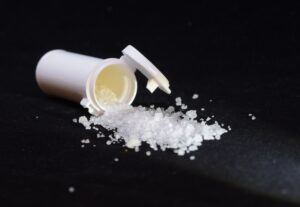Meth addiction has hit Los Angeles’s LGBTQ community hard, bringing unique challenges for those seeking recovery. So, if you find yourself searching for “meth rehab near me” or “meth rehab in Los Angeles,” it’s important to find a treatment center that understands these specific needs.
Effective meth rehab for the LGBTQ community involves comprehensive care. That includes everything from managing withdrawal to providing affirmative support and aftercare.
Here’s what to know about meth rehab in Los Angeles and how a quality program can make all the difference in long-term recovery.
Meth rehab in Los Angeles is just a call away: 888.903.9898
1. Meth is a Big Problem in Los Angeles’s LGBTQ Community
Los Angeles is home to one of the largest LGBTQ communities in the United States, with 5.1% of Angelenos identifying as LGBTQ. But with this visibility comes a serious challenge: meth addiction.
Meth’s impact on Los Angeles is profound. Meth-related overdoses account for more than half of all drug-related deaths in LA County and meth fatalities skyrocketed by nearly 1,200% between 2010 and 2020. The resulting healthcare costs soared from $252 million in 2010 to $1.3 billion in 2020.
The toll is even more concerning in LA’s LGBTQ community, especially among men who have sex with men (MSM). Their meth use is often linked to risky sexual behaviors, which can increase HIV transmission rates. Indeed, meth use raises a person’s risk of contracting HIV by seven times. Additionally, many people who are already HIV-positive stop taking medications while using meth, further threatening their health.
LGBTQ-focused meth rehab in Los Angeles, such as La Fuente, is essential to addressing these needs. By offering a safe, inclusive environment with protocols for HIV testing and medication, La Fuente provides specialized care that many general treatment centers aren’t equipped to handle. Our experienced team understands these unique challenges and helps clients begin their recovery process with stability and comprehensive support.
2. Inpatient Treatment Can Be Key to Meth Recovery
Unlike outpatient treatment, which requires balancing daily responsibilities with the challenges of early sobriety, inpatient treatment gives people the stability they need to focus on recovery. Such care is especially important for meth withdrawal, which often causes intense symptoms.
That’s even more true in a busy, high-energy place like Los Angeles. The city’s nonstop social scene and nightlife can make it tough to avoid triggers. Inpatient treatment offers a safe, quiet space away from those distractions, so clients can build coping skills and a solid foundation before returning to LA’s fast-paced environment.
3. Meth Recovery Has Three Stages
Recovering from meth addiction is a gradual process with three stages that build on each other.
Stage 1: Detox and Withdrawal
The first step in meth recovery is detox, a process during which the body clears the drug. This process can trigger intense cravings, fatigue, mood swings, and sometimes even temporary psychosis. Medical support during this stage helps clients manage withdrawal and reduces the risk of relapse.
Stage 2: Mental Health Treatment
Once detox is complete, the focus shifts to understanding the underlying causes of addiction. Indeed, many people turn to meth to cope with mental health issues like depression, anxiety, trauma, or PTSD. Cognitive-behavioral therapy (CBT) is commonly used to help clients identify harmful thought patterns and develop healthier coping mechanisms. Therapy may also include family counseling or group sessions.
Stage 3: Life Skills Training
In the final stage, clients focus on building the skills they need for life after treatment. This includes developing life skills, managing triggers, and strengthening resilience against stressors. Clients often participate in support groups, learning from peers who understand the struggles of addiction.
4. A Quality Meth Rehab Program in LA Has These Key Elements
A quality meth rehab program in Los Angeles offers essential services that support long-term recovery. This includes detox, therapies like cognitive-behavioral therapy (CBT), and family counseling to address both physical and emotional aspects of addiction.
For LGBTQ clients, specialized counseling and support groups, including family education and 12-step programs, are vital. Aftercare is also important, and LA’s network of peer support and alumni groups gives clients access to a community that will help them stay accountable and committed to recovery.
5. Recovery from Meth Addiction Takes Time and Professional Support
Meth addiction has lasting effects on the brain, often altering cognitive functions like impulse control, focus, and emotional regulation. Because it can take a year or more for the brain to heal, meth recovery is a gradual process that requires consistent therapy and support.
A structured environment, like that provided in professional rehab, plays a key role during this time. Rehab centers offer individualized treatment plans tailored to each person’s needs, addressing both addiction and any underlying mental health issues like anxiety or depression.
For many, however, the shift from inpatient treatment to independent living can be challenging. To help bridge this transition, La Fuente offers a sober living house where clients can stay as they rebuild life skills, establish routines, and connect with others in recovery.
We also provide aftercare options like peer support groups and alumni programs to further support long-term sobriety. These resources give clients an ongoing support network beyond formal treatment, helping them stay connected and committed to recovery.
Meth Rehab in Los Angeles at La Fuente Hollywood Treatment Center
With more than a decade of expertise in treating meth addiction, La Fuente’s team is well-equipped to support clients at every stage of recovery. Our comprehensive meth rehab program combines individualized therapy, life skills training, and aftercare options that keep clients connected to a supportive community long after treatment ends.
Plus, our close ties with Los Angeles’s LGBTQ and recovery communities further reinforce the support network our clients need for lasting success in recovery.
Struggling with meth addiction? Call La Fuente Hollywood Treatment Center today at 888.903.9898.




